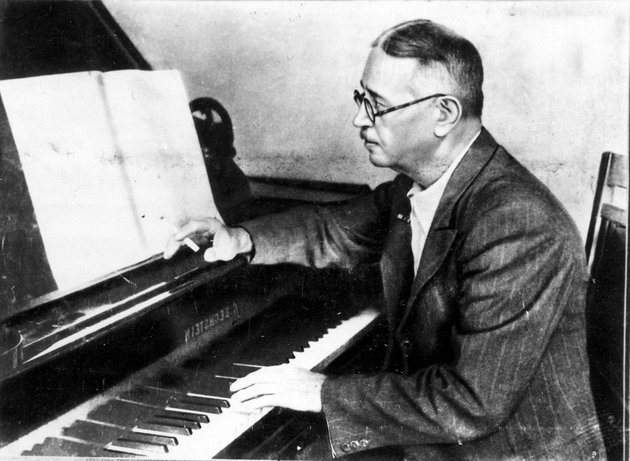During the first Karabakh war, the strategically located Shusha became one of the main targets of the Armenian nationalists. They occupied the city on May 8, 1992, looted museums, which contained thousands of exhibits, destroyed hundreds of historical and cultural monuments, desecrated sanctuaries and mosques, destroyed many rare samples of manuscripts, and turned educational and health institutions into ruins. On November 7, 2020, a key city in the Nagorno-Karabakh region was liberated from the 28-year-old Armenian occupation. The Azerbaijani military recaptured Shusha with light weapons in hand-to-hand combat, passing through gorges, forests and mountains.
The city is called the pearl of Karabakh. It was an important center of Azerbaijani poetry and traditional mugham, which was inscribed on the UNESCO Intangible Cultural Heritage List in 2008. Shusha was the home of famous Azerbaijani mugham masters such as Haji Gusi, Abdulbagi Zulalov and Jabbar Garyagdy. Khurshudbanu Natavan, Jabbar Garyagdyoglu, Bulbul, Khan Shushinsky, and also Uzeyir Hajibeyov lived and worked in this city.
November 23 marked the day of memory of the composer, People's Artist of the USSR, founder of the modern musical culture of Azerbaijan Uzeyir Hajibeyov. Hajibeyov is revered at home, in Azerbaijan, and by all enlightened people, as a whole, versatile person. His life (1885-1948) was bright and full of creativity. He showed himself in many fields: he was a teacher, translator, journalist, publisher. But most of all, of course, a musician, a composer. And most importantly - the creator of the Azerbaijani national music school and theater.
He found an organic and subtle way of combining elements of Azerbaijani folk music and classical European traditions. The first national opera "Leyli and Majnun" (1908) based on the poem of the same name by the Azerbaijani poet Fizuli was written in this style. At the time of the premiere performance in Baku, the author performed the violin part in the orchestra.
Uzeir Hajibeyov himself later explained the success and popularity of "Leyli and Majnun" by the fact that "the Azerbaijani people were already expecting the appearance of their own, Azerbaijani opera on the stage, and it combined truly folk music and a popular classical plot."
For the first hundred years, "Leyli and Majnun" has been staged more than 20 thousand times on various stages of Azerbaijan. Love for her is unchanged today, when she is performed both at home and on numerous foreign stages.
The last of the three operettas of the composer "Arshin Mal Alan" (1913) may well be "measured against fame" with the opera "Leyli and Majnun". Its action takes place in Shusha, where Uzeyir Hajibeyov himself spent his childhood and where his artistic taste and creative preferences began to form. "Arshin Mal Alan, arshin Mal Alan!" - with this melodious appeal, the local peddler lured urban fashionistas.
The operetta based on the love story of the merchant Asker's courtship for the charming Gulchohra was successfully staged in almost 80 countries of the world, translated into more than 70 languages. The premiere took place in Paris in 1925. "Arshin Mal Alan" is still loved in Russia, Austria, the USA, China. In the early 2000s, the operetta was staged by its alumni, popular Russian actors, on the stage of Pike (Shchukin Higher Theater School at the Vakhtangov State Theater).
Filmed "Arshin Mal Alan" also repeatedly. Both in Russia and in the USA. The film, filmed in 1945, was released in Soviet distribution with the personal approval of Stalin. In the USSR, the film became one of the most beloved by viewers - more than 16 million people watched it. The profit of the painting was fantastic.
In total, Uzeyir Hajibeyov presented the world with 7 operas and 3 operettas. Musicologists consider the opera Korogly (1936) the best work of the composer, an "encyclopedia" of his style. The heroic epic from the history of medieval Azerbaijan in 1941 brought him the prestigious Stalin Prize and became, to some extent, a personal "talisman" at that tough and unpredictable time.
It is interesting that Uzeyir Hajibeyov also created all the national anthems of Azerbaijan. In 1918, 1930 and 1944. Since 1991, the very first of his hymns (1918) became the state one in the republic.
American journalist and critic Matthew O'Brien succinctly and vividly outlined the genius of the Azerbaijani composer as follows: "Hajibeyov is comparable to Glinka. His importance as an ethno-musician is comparable to Komitas. His influence as a teacher is comparable to that of Rimsky-Korsakov or Taneev. Hajibeyov in the role the founder of Azerbaijani music education is comparable to the Rubinstein brothers. "
"Uzeyir Hajibeyov is a singing composer, from his first to the last note. I also often catch myself singing Hajibey's music. And if I make a fake somewhere or miss something, then I am often corrected by people who have no musical education. What a powerful talent you need to have so that your people know and love you so well ", - Arif Melikov, an outstanding Azerbaijani composer and teacher.
And here is a look at the role of the composer in general by Uzeyir Hajibeyov himself: “Every nation requires its composers to compose their works, no matter how complex they are, in a musical language that is close and dear to him. ".






